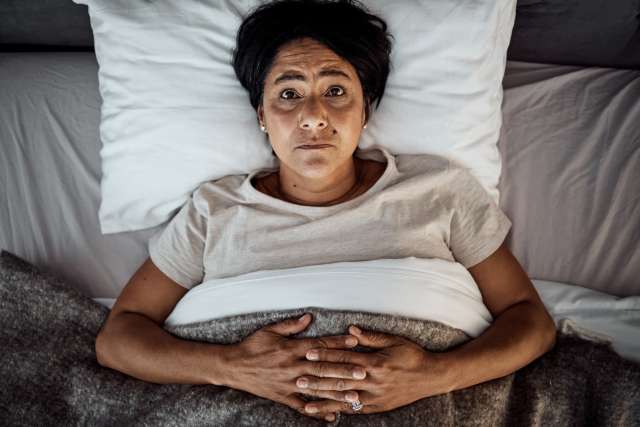Many men assume they don’t need to see a doctor unless they’re sick. It’s easy to let one checkup slip by, and then another. Before you know it, you haven’t seen a doctor in years.
If you’ve fallen behind on your health screenings, you’re not alone. But now is the time to get back on track, even if you’re feeling great. Jesse Mills, MD, director of The Men’s Clinic at UCLA Health, explains which health screenings men need and why they’re important.
1. Blood pressure check
High blood pressure increases the risk of heart attack and stroke, which are the top causes of death for U.S. men. “More than 60% of men ages 40 to 59 have high blood pressure, and that number jumps to 75% when you reach age 60,” says Dr. Mills. “You can’t feel high blood pressure, but it can harm your heart over time. The good news is it’s preventable and treatable.”
A check at your doctor’s office is the best place to start, and consider following that up with regular checks at home. “If you decide to use an at-home blood pressure cuff, take it to your provider’s office first,” Dr. Mills says. “They can check and calibrate it to be sure you’re getting accurate results.”
What if your blood pressure numbers are less than perfect? “Lifestyle changes, such as a heart-healthy diet and regular exercise, can improve blood pressure in many cases,” says Dr. Mills. “We may also prescribe medication if needed.”
2. Cholesterol panel
A cholesterol imbalance is another risk factor for heart attack and stroke that has no symptoms. “Ideally, men should get a cholesterol check in their 20s,” says Dr. Mills. “After that, you need follow-up checks every one to four years, depending on your age and risk factors.”
A full cholesterol panel is a blood test that measures your HDL (“good”) cholesterol, LDL (“bad”) cholesterol and your triglycerides. “Your cholesterol panel is another important piece of the puzzle when we’re calculating heart disease risk,” says Dr. Mills. “As with blood pressure, lifestyle changes and sometimes medications can help you improve your levels.”
3. Blood sugar and metabolic panel
Men are more likely to develop diabetes than women. And when this condition isn’t under good control, it can lead to other health issues such as heart disease, kidney failure, limb loss and sexual problems.
“A metabolic panel is a blood test that can help diagnose diabetes, kidney disease and liver disease,” says Dr. Mills. “It gives us a good baseline of your health and allows us to treat potential conditions early, before they become serious.”
Most men benefit from a yearly metabolic panel. “You may need more frequent checks if you have diabetes or another condition,” says Dr. Mills. “If you’re taking certain medications, this test can also help us determine how your treatment is working.”
4. Colorectal cancer screening
One in 24 men will be diagnosed with colorectal cancer in their lifetime. And it’s not just a cancer that affects older people. “Colorectal cancer is on the rise in adults under age 50,” says Dr. Mills. “And recent research has found that this cancer is the leading cause of cancer-related death in men who are 20 to 49 years of age.”
Screening can find this cancer early, when treatment is often more successful. Depending on your age and medical history, your colorectal cancer screening may be a colonoscopy, CT colonography (virtual colonoscopy) or a stool-based test you take at home.
“We recommend starting colorectal cancer screening at age 45, or sooner if you have a higher risk,” says Dr. Mills. “Talk with your provider about which test might be best for you.”
5. Prostate cancer screening
In general, men can begin screening for prostate cancer between the ages of 50 and 55. The exact age will vary depending on your family history and other risk factors. Usually, this starts with a prostate-specific antigen (PSA) blood test.
“A PSA alone cannot diagnose prostate cancer, but it gives us information to decide what to do next,” says Dr. Mills. “If you have a high PSA, we may offer additional tests to find out if it could be cancer or a non-cancerous prostate issue.”
Not sure if you need prostate cancer screening? Ask your provider. “Your doctor can explain the benefits and drawbacks of screening,” says Dr. Mills. “When you understand the test and your risk factors, you can make an informed decision.”
6. Skin cancer screening
Melanoma — a potentially deadly type of skin cancer — appears to hit men harder, too. This cancer affects more men than women and causes more deaths in men overall. And melanoma often appears in places that are hard to see, including your scalp or back.
“A professional skin check can catch melanoma early, which leads to a higher chance of a cure,” says Dr. Mills. “Unfortunately, men tend to put off this type of screening. Some assume you have to be a long-time tanner or have melanoma in your family to be at risk, but this isn’t the case. Everyday sun exposure adds up over time.”
There’s no designated age to start skin cancer checks. “All adults need skin checks, but the frequency and age may vary based on your risk factors,” says Dr. Mills. “Your provider can talk with you about this screening at your regular checkup. And if you notice any suspicious changes in your skin, contact your provider — even if you had a recent skin check done.”
Time to call your doctor?
Getting the health screenings you need doesn’t have to be complicated. Start with your primary care provider, who can perform many of these screenings and coordinate specialist care if needed.
“Too many men put their health on the back burner, and we want to change that,” says Dr. Mills. “One of these screenings could catch a disease early and even save your life.”




